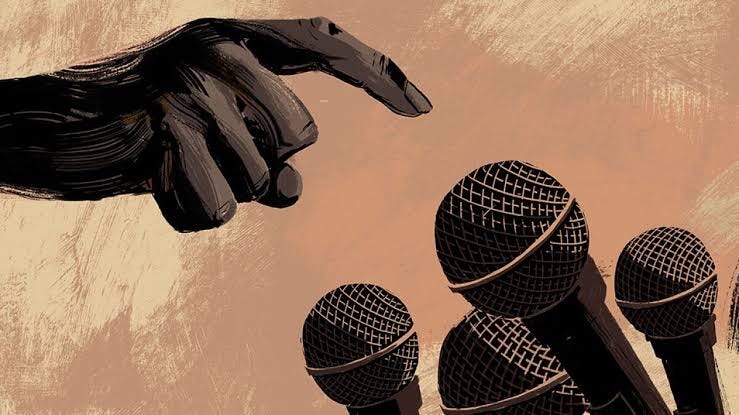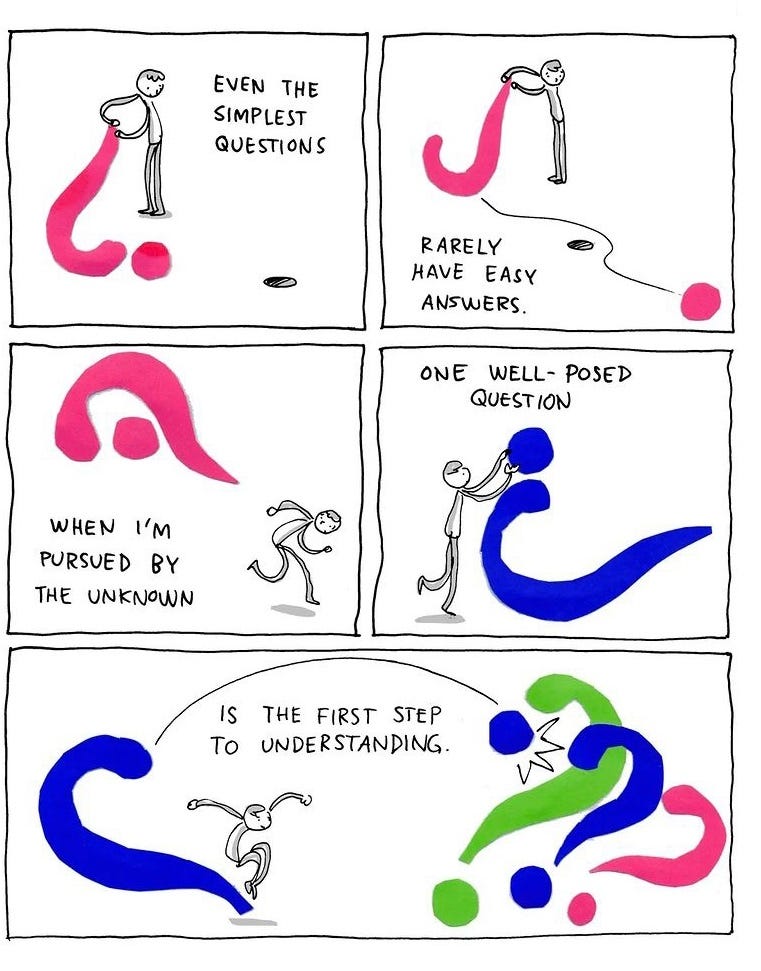
“Being a writer allows you to participate in the strange paradox of providing your readers the answer before they even ask the question.”
— A thought that swam across my mind as my eyes played peekaboo with the lightning in the sky.
The Answer?

09 December 2021
One of the few things I’ve made peace with over the course of the year is that there’s always an unspoken desire for your work— not because you’re some hot commodity but because you owe it to someone who doesn’t know it yet. Inspiration could be lying dormant in some unsuspecting member of the audience and some carefully arranged words could be the catalyst that encourages that inspiration to blossom to its fiery completion.
Yet it can be taxing at times, trying to be a pipeline for inspiration all year round. I had to pay my dues over the course of some months, even when I was running dry. That’s why I find it absolutely astounding that the greats can churn out pages of this stuff in a single day. They have so much juice pouring out of their minds without ever having to lift the jug and when they finally do, there’s a flood. The greatest the world has felt at that moment. Then this thing called passion stretches that moment into a century. I suppose the romantic term for that would be a page. So, what do you call a book?
Now as profound as the work ethic of the greats may be or as infuriating as writing for the average author is, it’s nowhere near as gruelling as backbreaking work in the sun or cleaning up after children— both toddlers and adults alike. That’s why I maintain that you’d be kidding yourself if you failed to admit how fortunate you are to play a role in shaping inspiration by simply threading words together on a page.
The mechanical aspects of writing aside, one also has to contend with their own tribulations and trepidation— pride can be suffocating and selling yourself short is equally debilitating. I suppose it all loops back to that issue of gauging one’s self-worth, especially as it pertains to the work one produces. It’s just a shame that the most convenient instrument we employ to measure ourselves comes in the form of external validation, which is either sobering or intoxicating, depending on the dosage. It’s dizzying how quickly we reach out to that all-too-common tool; it becomes a reflex that’s almost as natural as breathing or passing judgement on something or someone.
How one reorients themselves in order to abandon this perplexing habit is perhaps a topic for another day, and even then, I can’t promise that it will be a one-size-fits-all, cure-all, antidote1 by the time it’s in stock. What I can say for sure is that after all the manoeuvring I’ve had to do —whether it was summoning the strength to click and clack away at this mobile typewriter I call a phone or reprimand myself every time I was inclined to seek motivation and appraisal from without— I can faithfully conclude that writing is how I give back to the world. It’s how I say thank you because not too long ago, I was once that kid in the audience, unknowingly waiting for a serendipitous eruption.
“I did come out with two invaluable intimations.
Talking to yourself can be useful.
And writing means being overheard.”

The Question.

19 June 2021
Our neighbours across the street held a wedding a few months ago. It was a welcome surprise in between the monotony of pandemic life. I found myself wishing their marriage all the best in the comfort of my own thoughts.
I did something similar a month prior to that when I was resting at a park watching a toddler chase after nothing in particular with his parents close behind him. I wanted him to stay safe and to keep pursuing his youth well into the future.
Not out of self-righteousness or a sense of responsibility. If you had to ask me why, I wouldn’t really know how to answer you. If the guests at the wedding were hoping and praying for the well-being of the newlyweds, I wanted to hope and pray too. If the parents at the park were concerned with the safety and continued curiosity of their child, I wanted to be concerned too.
Perhaps I submitted to that earthly desire that creeps up on us all, the desire to be a part of something bigger than ourselves. Maybe I wanted to play an active role in causality, hoping that all my unspoken words would nudge these people closer to their dreams.
Whether or not I did anything at all, I’ll never know. That is to say:
Do my unarticulated thoughts still leave an impression on the fabric of reality— does the narrative carry on regardless?
It made me wonder how many strangers have spared a moment of their day to help fuel my own progress unbeknownst to me. How would I even begin to thank them?

A panacea /pænəˈsiːə/, named after the Greek goddess of universal remedy Panacea, is any supposed remedy that is claimed (for example) to cure all diseases and prolong life indefinitely. It was in the past sought by alchemists in connection with the elixir of life and the philosopher's stone, a mythical substance that would enable the transmutation of common metals into gold. Through the 18th and 19th centuries, many "patent medicines" were claimed to be panaceas, and they became very big business. The term "panacea" is used in a negative way to describe the overuse of any one solution to solve many different problems, especially in medicine.[1] The word has acquired connotations of snake oil and quackery.




